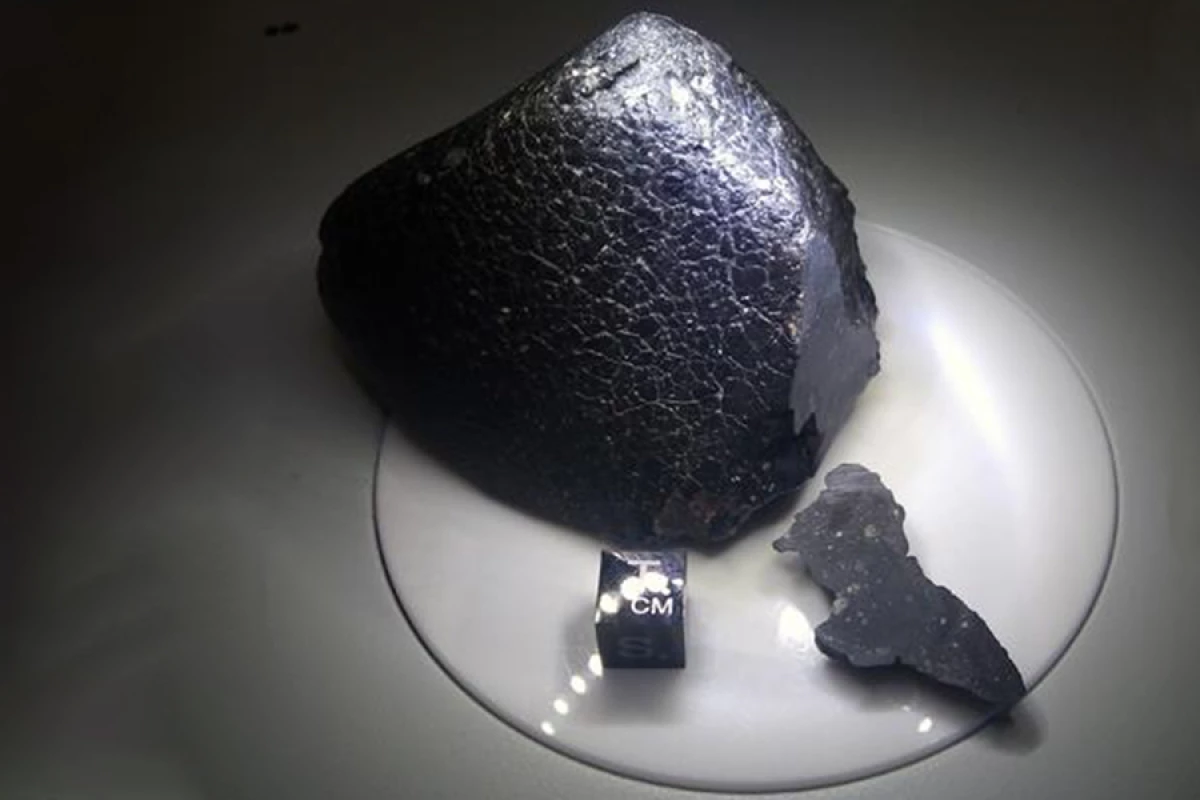Scientists are asking meteorite hunters to refrain from using magnets to test the authenticity of their finds because this can destroy the specimen's magnetic memory, erasing valuable information about the nature of the solar system.
Once dismissed as superstition, meteorites are now big business with some cosmic fragments selling for thousands of dollars and a few for well over a million. However, just as valuable is the knowledge that they've brought us about the early days of the solar system and how it formed.
We now know that almost all of the tens of thousands of meteorites that have been found originated from about 100 parent bodies in the solar system. We also know that some of these meteors were hurled into space from other planets, most notably Mars.
About 175 Martian meteorites have been found to date, with most coming from North Africa and Antarctica, where they stand out against the lightly colored, barren landscape. From these, scientists can learn a great deal about the Red Planet.
But a new Massachusetts Institute of Technology (MIT) study has shown that collectors, dealers, hunters, and museum curators have inadvertently destroyed valuable evidence by testing meteorites with magnets.
Since most meteorites are composed of nickel and iron, a cheap magnet is a simple way to test a suspected specimen. Touch the magnet to it and if it sticks, then that's a positive.
But when a rock containing magnetic materials first forms or cools down after being heated to high temperatures, it will pick up the local magnetic field. By analyzing this signature, scientists can deduce all sorts of things, including the strength of the original field and the age of the sample.
The MIT study looked at a famous meteorite called Northwest Africa (NWA) 7034 or Black Beauty, which was found in 2011 in the Sahara Desert. Multiple shards of this obsidian-black meteorite have been found all over northeast Africa and scientists estimate that it is 4.4 billion years old, which makes it very interesting because it dates back to a time when Mars had water and a magnetic field.
However, what the team found was that many shards from Black Beauty had been re-magnetized on Earth and their ancient Martian magnetic field was erased. This not only destroyed valuable information, it also introduced misleading false data that can lead to scientific dead ends.
As part of the new study, the team developed a mathematical model based on looking at the field of an ordinary hand magnet, how it can alter the magnetic properties of terrestrial minerals, and determining how well this fits the model against experiments. This allowed the team to determine whether a sample had been re-magnetized and how deep inside the specimen the re-magnetizing penetrates.
The team is asking meteorite hunters to avoid using magnets and to instead use susceptibility meters, which can identify a meteorite by measuring a sample's susceptibility to magnetism without erasing its field. Unfortunately, such meters cost thousands of dollars, so some testing may have to be done further up the line from meteorite hunters, such as by collectors and museums.
"There’s been this incredible explosion of meteorite diversity and number in the last 20 years or so, and we owe meteorite hunters a thanks for finding these things," said Benjamin Weiss, professor of planetary sciences at MIT. "But the trade-off, the devil’s bargain, is that often they are using magnets to find them, and are immediately destroying their magnetic record in the process."
The research was published in the Journal of Geophysical Research: Planets.





